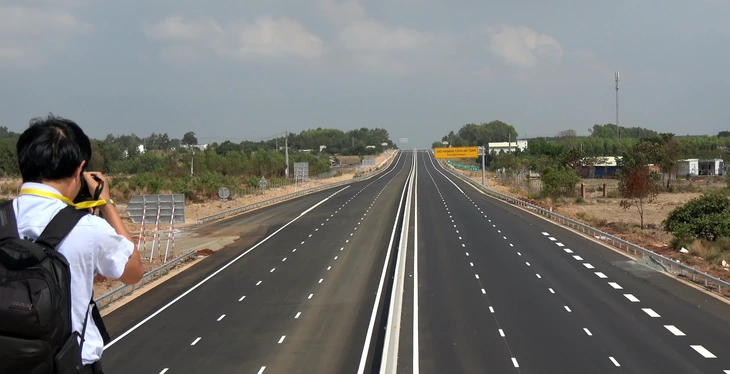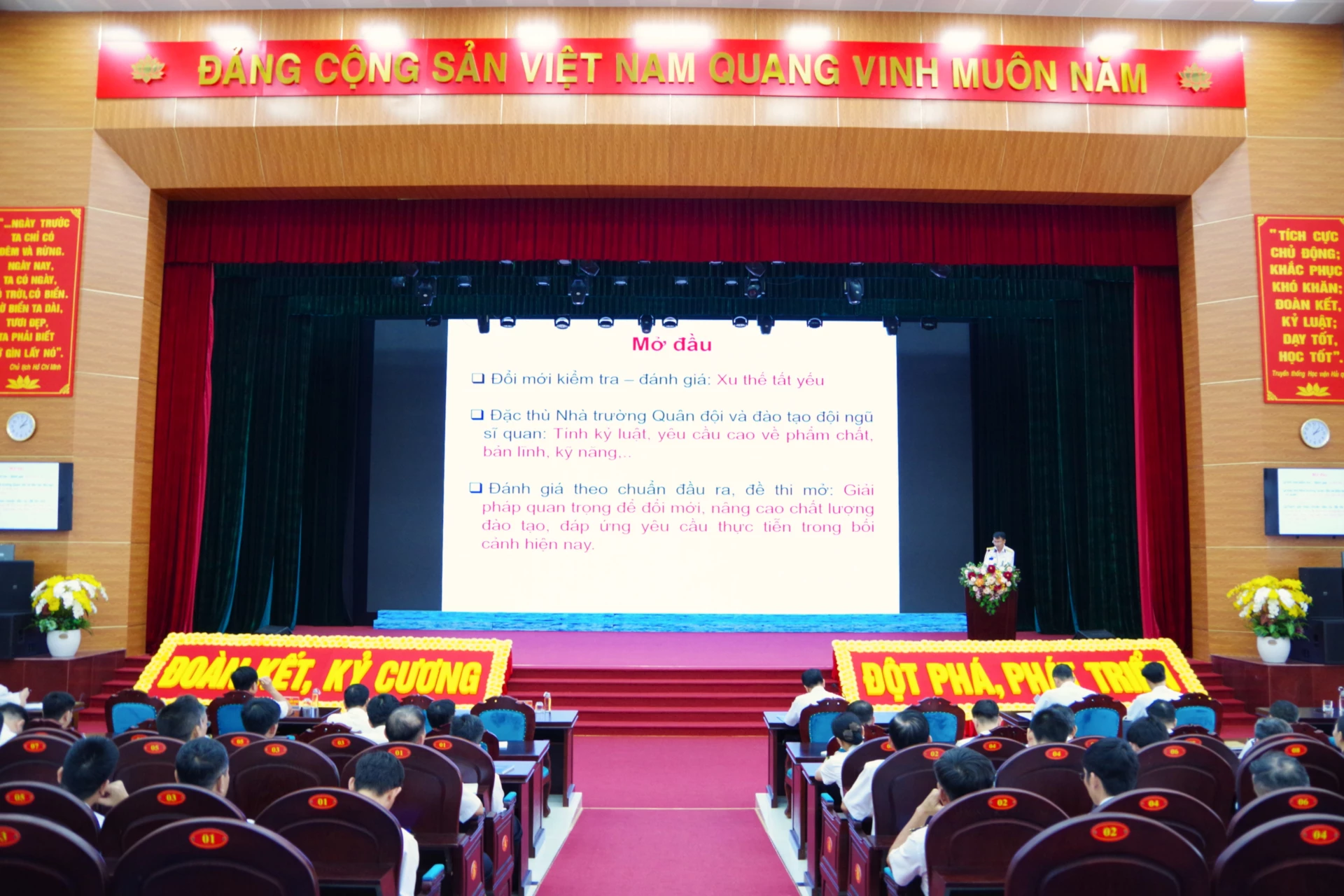
Reporters take photos of the Bien Hoa - Vung Tau expressway section through Ho Chi Minh City on the day of technical traffic opening in April 2025 - Photo: DONG HA
Hot news often spreads rapidly on social networks. The news can be true or fake.
The role of mainstream press and media in the era of fake news
In the digital age, information is no longer produced only by journalists or mainstream media. Anyone can be a "content producer", anyone can become a "spokesperson" on a personal page, and anyone can even "manipulate psychology" from "self-produced" information.
However, among that information, fake news tends to spread faster than real news because of its sensationalism, shock, and appeal to the immediate emotions of many readers.
This suggests that digital media societies are prone to “instant reflex” – a sociological term for when societies experience information unfiltered, and react based on immediate emotions, often anger, surprise or frustration.
In that context and situation, mainstream media is like "information masks" to filter out fake news and clarify the truth.
If fake news is considered an "information virus", then society needs a strong enough collective immune system to avoid being manipulated, divided or misled.
That immunity cannot be generated on its own, but needs to be fostered by proactive, synchronous and persistent actions from the entire political system, the media and each citizen.
What to do to have a "social immune system" against fake news?
To have a social immune system against fake news, there needs to be participation from management agencies, press agencies, media, and readers and social network users.
First of all, the media management agency needs to strengthen the legal framework firmly and continue to improve regulations on information management in cyberspace. In particular, there must be sanctions and strict enforcement against acts of spreading fake news, false information that causes public confusion or harms the reputation of organizations and individuals.
At the same time, there is a need for a specialized agency that can receive, verify and respond quickly to news suspected of being fake.
Regulators should require social media platforms to deploy algorithms to control misleading content, flagging unverified posts.
With press agencies, the media continues to affirm its role of criticism and leadership .
In the storm of fake news, people need reliable sources of information to refer to. The mainstream press and media need to become the "lifebuoy" of public opinion, helping readers distinguish between the truth and cleverly disguised lies.
As for readers, social media users need to form natural "antibodies" to fake news. In particular, they need to be equipped with knowledge, analytical skills, checking sources, and asking questions before each piece of information.
Furthermore, people can also respond to misinformation, report harmful posts, and share reliable sources to help spread the truth.
It is important that society has an immune mechanism, that is, the ability to detect, react to and resist its invasion, through a transparent, accurate and responsible information ecosystem.
Social immunity to fake news does not come from a single individual or organization, but is the result of multi-layered coordination: law, media, technology and citizen information culture.
When each person becomes an "antibody" - alert, critical and responsible - then fake news will no longer have a place to survive.
Fake news can spread quickly, but the truth, if properly protected by law, by the press and by a vigilant community... can still win.
That is the philosophy of a progressive social foundation, the foundation of a democratic, fair, civilized and strong nation. It is also the basis for creating a harmonious social order, where people can live, work and develop in a peaceful and respectful environment.
Source: https://tuoitre.vn/thoi-ma-ai-cung-co-the-xuat-ban-tin-xa-hoi-phai-co-he-mien-dich-voi-tin-gia-20250808091458065.htm





























![[Photo] An Phu intersection project connecting Ho Chi Minh City-Long Thanh-Dau Giay expressway behind schedule](https://vstatic.vietnam.vn/vietnam/resource/IMAGE/2025/8/21/1ad80e9dd8944150bb72e6c49ecc7e08)






























![[Photo] Politburo works with the Standing Committee of Hanoi Party Committee and Ho Chi Minh City Party Committee](https://vstatic.vietnam.vn/vietnam/resource/IMAGE/2025/8/21/4f3460337a6045e7847d50d38704355d)

































Comment (0)